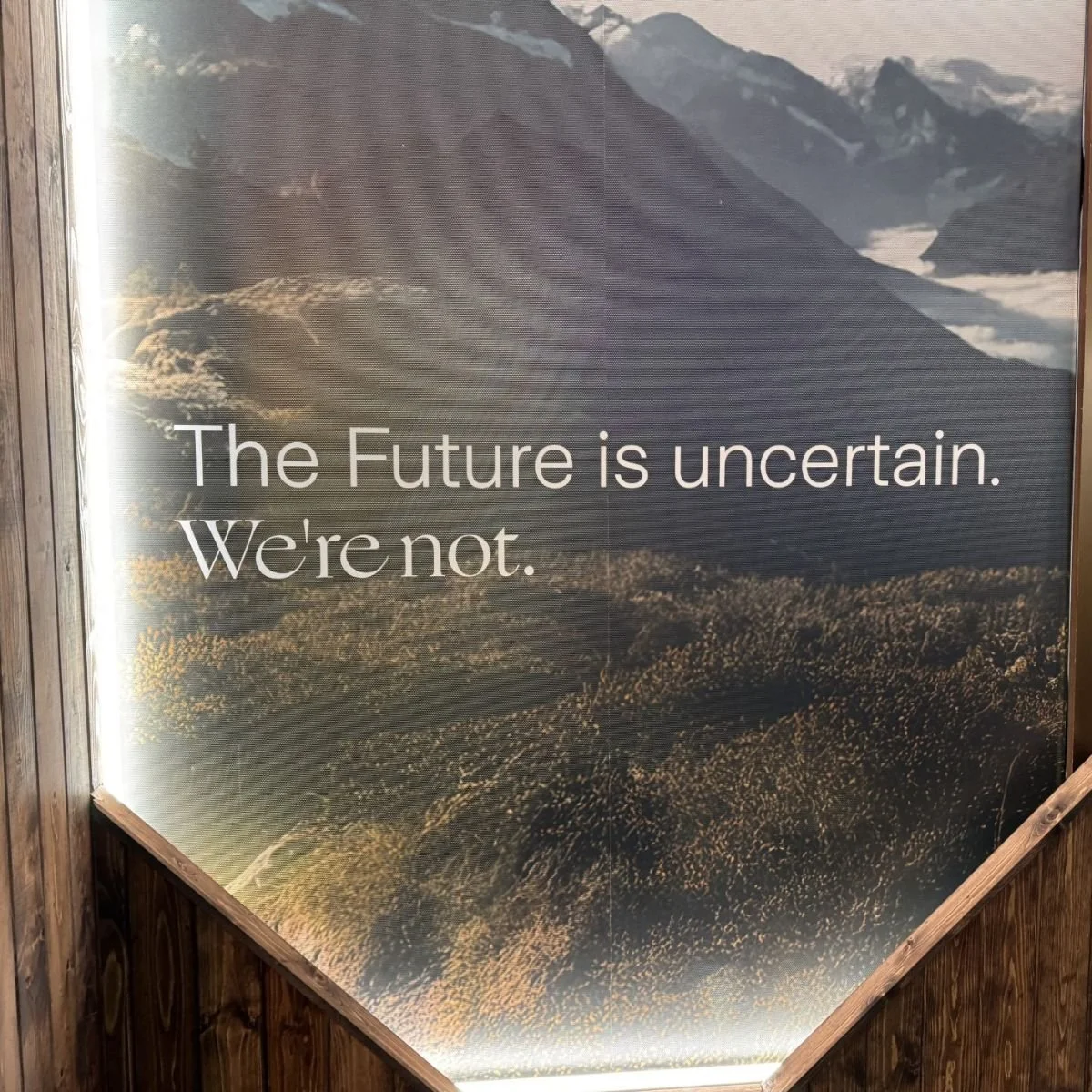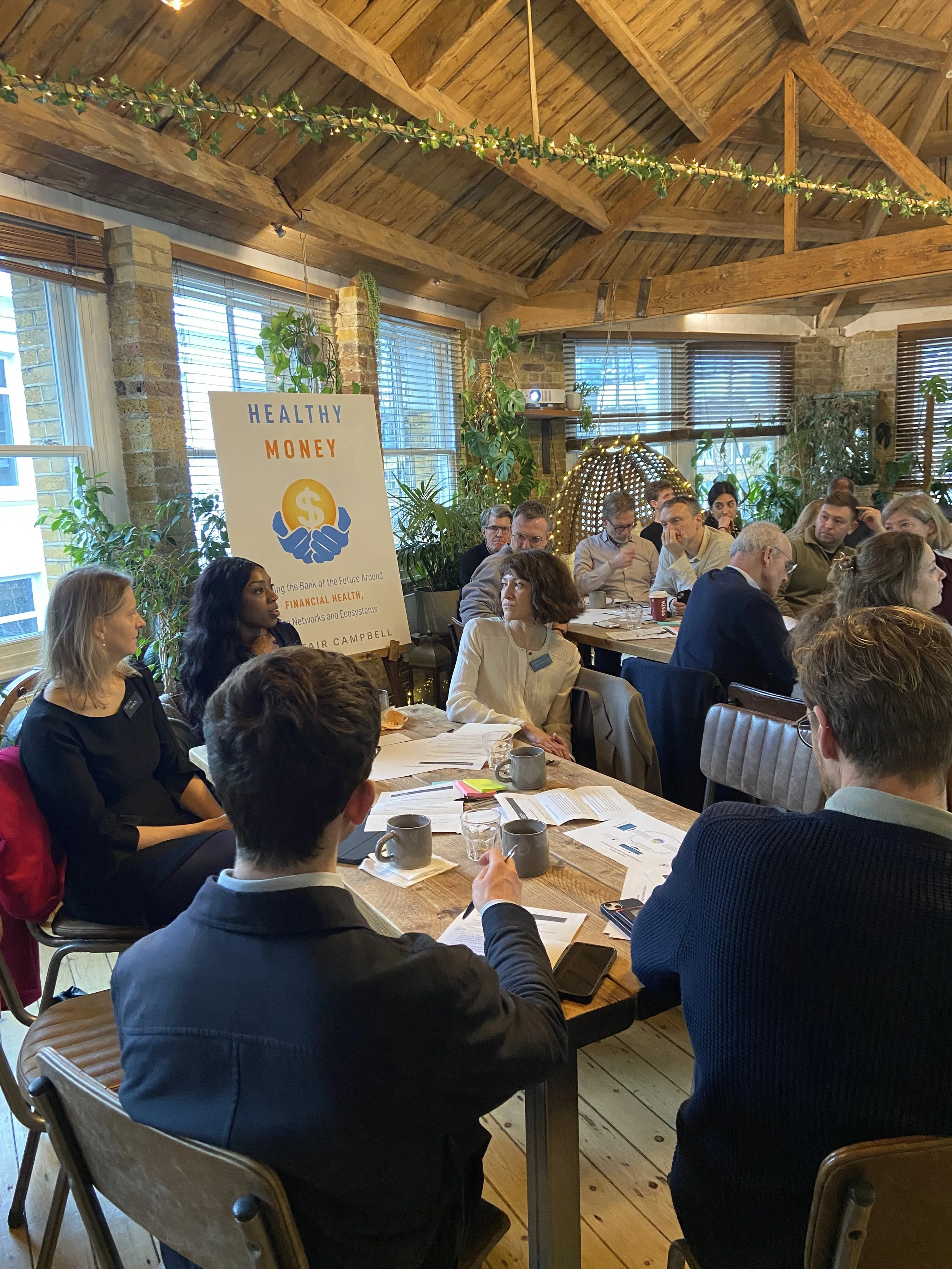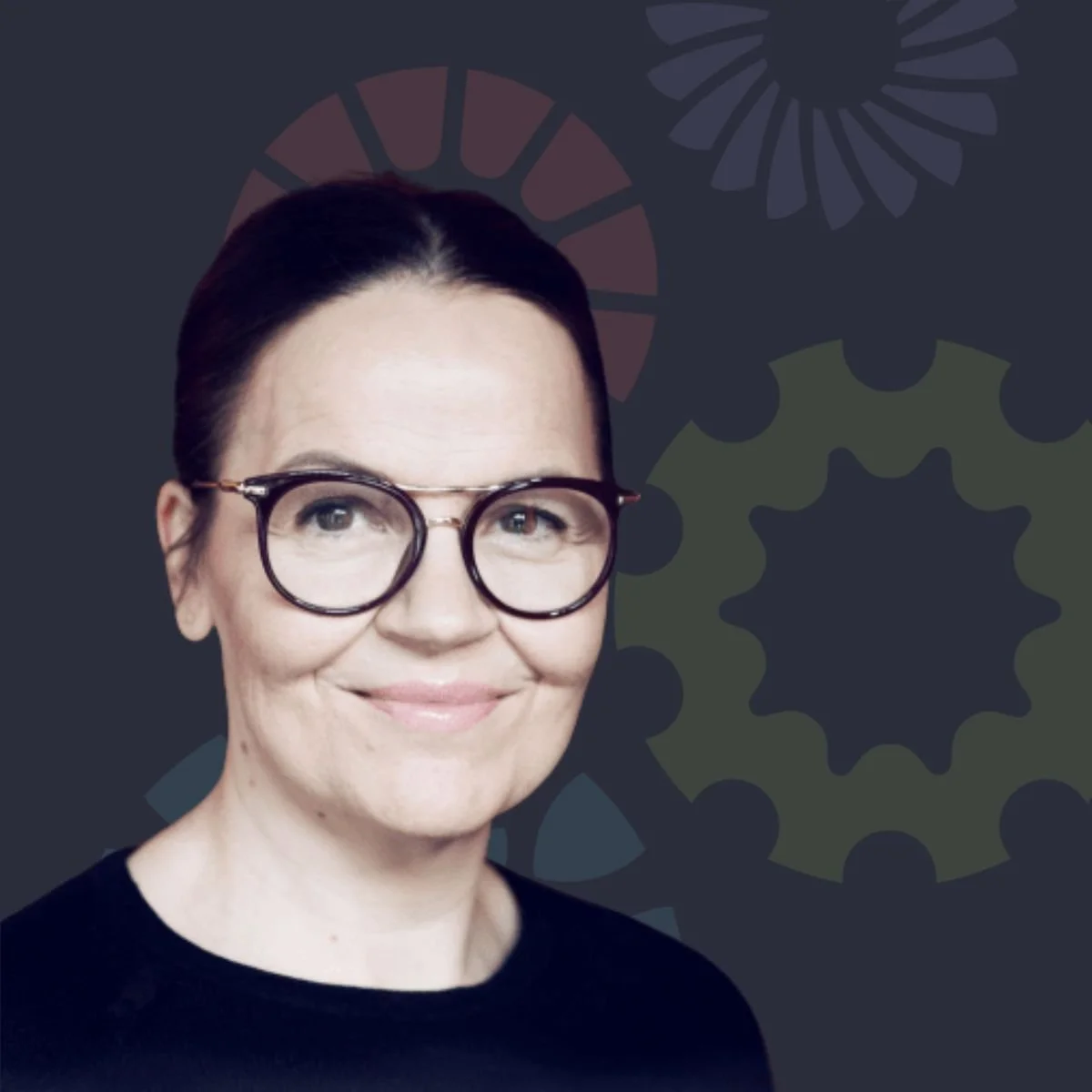Rooted in Purpose: My Journey to Connect and Uplift All Stakeholders
March 2025 | Economics of Mutuality Leaders Stories
A Conversation With Susana Carrillo
Susana is a global consultant with over 20 years of experience spanning multilateral organizations and the private sector. She worked for the World Bank and the United Nations Development Program, managing policy reform operations, multistakeholder engagement initiatives and multisectoral investment programs, fundraising, knowledge and learning initiatives.
As a consultant for the Brazilian National Confederation of Industries, she led the design of projects and partnerships to support the Brazilian private sector globally. She facilitated the interaction through participatory processes among private sector, governments and civil society organizations to support policy reform operations in more than 10 countries.
In academia, she has taught at George Mason University, the University of the Pacific, the University of Piura, and currently at the University for Applied Sciences in Lima, Peru. A Certified Consultant in Economics of Mutuality (Oxford University’s Saïd Business School), she has completed executive training programs at institutions such as Cambridge Judge Business School and Dom Cabral Business School.
Susana holds master’s degrees from the Graduate Institute (Geneva) and the Fletcher School of Law and Diplomacy (Tufts University), along with coursework at Birmingham University. Fluent in English, French, Spanish, and Portuguese, she brings a multicultural perspective to her work in driving inclusive and sustainable growth.
Let’s start with your journey. Can you share a bit about your background and what led you to where you are today?
I was born in Lima, Peru in a multicultural home: Swiss, Peruvian and Brazilian.
My early years were marked by visits to low-income communities alongside my mother, whose volunteer work revealed the stark social and economic disparities in Peru. This exposure instilled in me an enduring commitment to building inclusive societies with equal access to health, education, and wellbeing.
After my studies at the Graduate Institute of International and Development Studies (Geneva, Switzerland), I began my career in Zurich’s financial sector. I quickly realized that my personal motivation and interests were not only financial but to contribute towards social and economic development.
Taking a job offer in Sub-Saharan Africa, was an extraordinary opportunity to understand the dynamics of some corporations in the coffee and cacao sectors among others. I remember visiting the coffee fields in Rwanda and Burundi where I had the opportunity to talk to the farmers and learn about their working conditions and interacted with young boys in the processing plants.
There I witnessed the harsh realities of exploitation and realized that true progress lay not in short-term profits but in cultivating human and social capital. Those formative experiences continue to guide my dedication to mutual value creation today.
Throughout your career, how has your perspective on purpose-driven and responsible business evolved? Were there any key moments or experiences that significantly shaped your views?
The journey has been anything but linear.
Early on, I immersed myself in multi-stakeholder engagement projects, bridging the gap between government, business, and community interests. Managing large-scale policy reforms taught me that success is measured not by short-term impact, but by medium- and long-term benefits that uplift all stakeholders. A pivotal experience was my work with the “Partnerships for Developing Capacities for Engineering, Science and Technology,” in Brazil, a program that evaluated the impact of private sector initiatives on building local capacity in sectors like mining, infrastructure, oil and agriculture in several countries.
We looked not only at the impact of the program on the labour force, but also the medium- and long-term impacts on those sectors and the countries’ economic development. This deep dive into sustainable development underscored that putting “purpose into practice” requires a broad, inclusive approach - one that transcends immediate gains.
You’ve participated in the Oxford Economics of Mutuality (EoM) Virtual Executive Education Program and recently became a Certified EoM Expert. What were the most important insights or shifts you experienced through these programs?
Participating in the Oxford EoM program was a milestone that reinforced much of my on-ground experience acquired throughout my career. The program’s rigorous applied research vividly illustrated that traditional focus on financial capital - without considering other forms of capital – is detrimental to solving the huge challenges societies are facing today. The case studies shared during the program, like Mahindra First Choice implemented in India, was of extreme value to understand the importance of ecosystem mapping and other EoM tools.
What are some of the biggest challenges and opportunities you’re currently facing in your work? How are you approaching them?
At this stage, I’m dedicated to empowering leaders and teams who are willing to take risks and learn from their setbacks. My current focus is on helping visionary professionals embed purpose into their everyday operations - a mission I also pursue through teaching at executive programs. The potential opportunity to establish an EoM Hub in Brazil is particularly exciting, as it aligns with the government’s increasing commitment to fostering purposeful business partnerships, a vision set to shine on the global stage at COP30 in November 2025.
What makes the EoM operating model different from other purpose-driven business models, and how do you see it influencing your work?
I view the EoM operating model as indispensable because it goes beyond conventional metrics by identifying the diverse challenges companies face in nurturing various forms of capital - financial, social and environmental. With its robust tools and metrics, EoM provides a clear framework for navigating today’s complex socio-economic landscape, enabling businesses to create enduring, multifaceted value.
Despite today’s complex political and economic landscape, businesses are increasingly embracing purpose-driven strategies. Where do you see this movement heading, and what do you think the world of business will look like in 2050?
The effects of natural disasters and the global impact of climate change are forcing businesses to rethink their strategies. It will not be a smooth process, since changing entrenched ideas around the benefits of traditional capitalism will take time, commitment and effort. I am not ready to predict the world of business in 2050, but I remain hopeful that we will see more human-centred leaders who prioritize the benefit of people and planet over short-term profit.
For others looking to put purpose into practice in their organizations, are there any books, frameworks, or other resources you’d recommend?
First on my list is “Principles for Purposeful Business; How to Deliver The Frameworks for the Future of the Corporation” published by the British Academy. It is a compelling exploration of why purpose should come before profit – I highly recommend it!
Two other books I’d recommend are:
“Mission Economy. A Moonshot Guide to Changing Capitalism” by Mariana Mazzucato. She clearly shows the ongoing crisis of capitalism and the need to use collaborative and mission-oriented thinking while strengthening collaboration among private sector, governments and other stakeholders.
“Mindset. The New Psychology of Success” by Carol Dweck. The author suggests that those who flourish are open to continue developing their abilities: growth mindset versus fixed mindset. It is important that we focus on self-awareness first and know who we are as individuals, our values and motivations. This approach is as appropriate for personal growth as it is for developing a more progressive corporate culture.
This interview is part of the EoM Practitioner Stories series, which features individuals who are advancing and implementing the EoM model in their context.
To learn more about Susana and her work, you can visit her LinkedIn profile.
Click here to find out more about the Oxford Economics of Mutuality Virtual Executive Education Program. If you are interested in discussing how we could suport you with implementing the Economics of Mutuality in your context, please email hello@eom.org




